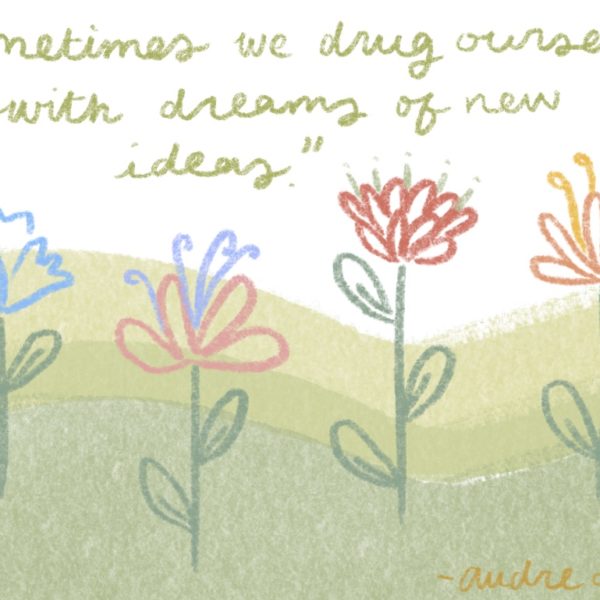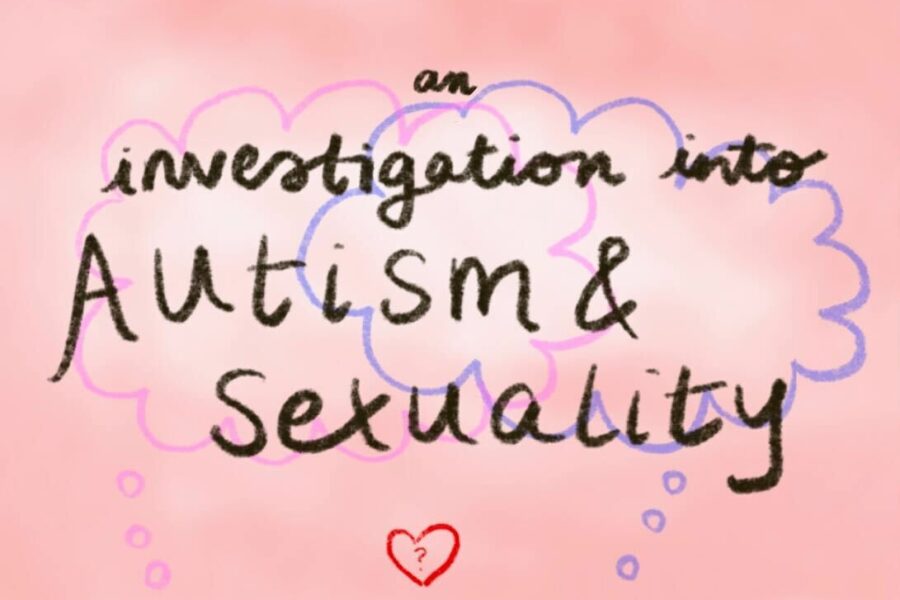For many, their sexual fantasies are a source of shame, a well-kept secret or even a source of anxiety. For others, sexual fantasies are no different from the sex they are already having. The transition from one to another requires much unlearning of sexual norms, personal growth, and open communication with sexual partners. Although challenging, it allows us to expand our understanding of sexual pleasure and explore our sexuality both within and outside of relationships…

What’s the point of sexual fantasies?
For many, their sexual fantasies are a source of shame, a well-kept secret or even a source of anxiety. For others, sexual fantasies are no different from the sex they are already having. The transition from one to another requires much unlearning of sexual norms, personal growth, and open communication with sexual partners. Although challenging, it allows us to expand our understanding of sexual pleasure and explore our sexuality both within and outside of relationships.
Popular culture and sex education have led us to believe that the only valid sexual desires are those deemed to be widely acceptable, and that anything outside of this is shameful and wrong. Although the sex positivity movement has been encouraging people to embrace their pleasure and desires since the 1960s, our cultural imagination has remained heteronormative, white, and couple-focused. This leads to our sexuality being sanitised, pushing us to ignore our desires and what turns us on, and instead focusing on what is socially acceptable. However, listening to our sexual fantasies and communicating these to our partners – or exploring them on our own – can help us unlearn these sexual norms. The experiences of those who embrace their sexual desires suggests that we can redefine not only our understanding of our own pleasure, but more broadly sexual liberation.
Communicating your sexual fantasies to your partners can increase trust and transparency and build healthier relationships. Even if your partner does not share the same sexual fantasy, it is worth communicating with them as this can set a precedent for communicating your desires in the future. We should all feel comfortable enough to discuss our fantasies with those we share our bodies with, rather than feel shame because of how we want to be pleased. Moreover, sexual fantasies are often very creative and imaginative, and can bring an exciting and playful aspect to both new and long-term relationships.
There are some things which can make this easier, such as researching your sexual fantasy before bringing it up, and becoming knowledgeable enough to describe it to someone, answer questions, and figure out if your partner(s) will enjoy the experience. If you would like to share your sexual fantasy with someone, make sure that you have their consent to do so before you start and that you are able to set boundaries if necessary. Furthermore, partners may not always react in the way we want them to, so it’s important to come to this conversation without expectations about their response or behaviour – be open to the possibility that your sexual fantasy may not align with theirs. This might mean that you could find a middle ground to satisfy both of you, but also it might be the case that it is one of their hard boundaries. Either way, the power of sexual fantasies lies in their ability to start conversations and change our ideas of sexual pleasure, even if we don’t enact them. Often the most enjoyable part of the sexual fantasy happens in your mind.
Some common sexual fantasies include watching your partner have sex with other people (or the other way around), having threesomes or public sex. However, this may be a hard no for your partner. In this case, your sexual fantasy may open the door for other conversations about fulfilling each other’s needs, your boundaries, and monogamy as well as discussions about alternative relationship modes such as ethical non-monogamy, open relationships, polyamory, and even relationship anarchy. There is nothing stopping you from experimenting with sexual desires, and the same applies to relationship models. Each relationship is unique and thus requires a unique configuration and dynamic.
Sexual fantasies also become handy when you can’t see your partner, whether because of a deadly pandemic that keeps you in your home for months, or because you and your partner are in a long-distance relationship. You might find yourself thinking about sex in a different way and considering things you’d like to try – new places you’d like to have sex, new positions, new sex toys, and new power dynamics. Instead of shying away from these sexual fantasies, taking them seriously can help keep things exciting, learning new things about yourself and your partner – their sexuality, their boundaries, and what gives them pleasure. And there’s nothing sexier than someone communicating their desires to you – consensually of course! Check with your partner before firing away: there’s nothing worse than receiving a full roleplay scenario at family dinner.
For those whose sexual fantasies are seen as shameful or deviant, our fantasies can help us unlearn what we are taught about the norms of sex and sexuality. Sexual fantasies can help us expand our idea of sexuality away from heteronormative, white, monogamous models. They can also teach us that there’s more to sex than we think, and that sexual practices and desires are a lot more diverse than we believe. This can be especially important for marginalised communities and those whose sexuality is already side-lined. It would be naïve to assume our sexual fantasies exist in a social vacuum; instead, they are shaped by our sociocultural and political contexts. This means that not everyone is afforded the same freedom to toy around with fantasy and play, and explore sexual fantasy without inhibitions. Those who are queer, trans, non-binary, genderfluid, and genderqueer are already considered deviant, existing outside heteronormative society and mainstream sexual behaviour. This makes subcultures such as hentai or tentacle porn so vital, as they can also be a source of community and validation.
Your sexual fantasies can be both political and personal. The space between is where we learn to reimagine our sexuality, and redefine sexual liberation and sex positivity. What we learn from our sexual fantasies will not only transform our sexual relations, but also our sexual identities.
Meli Vasiloudes, Sex and Relationships Editor
Header Image by the wonderful Lucia Villegas





Leave a Comment